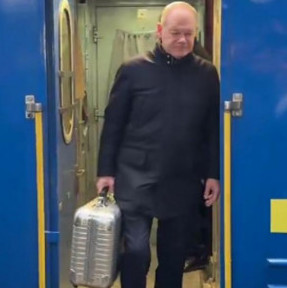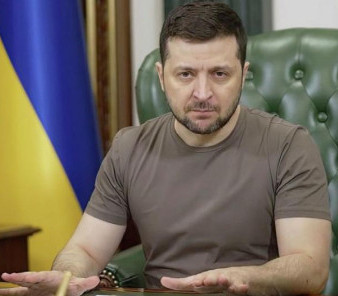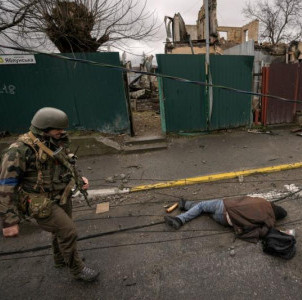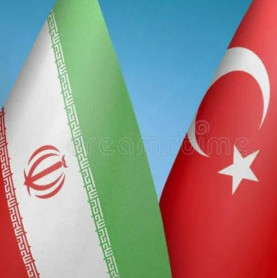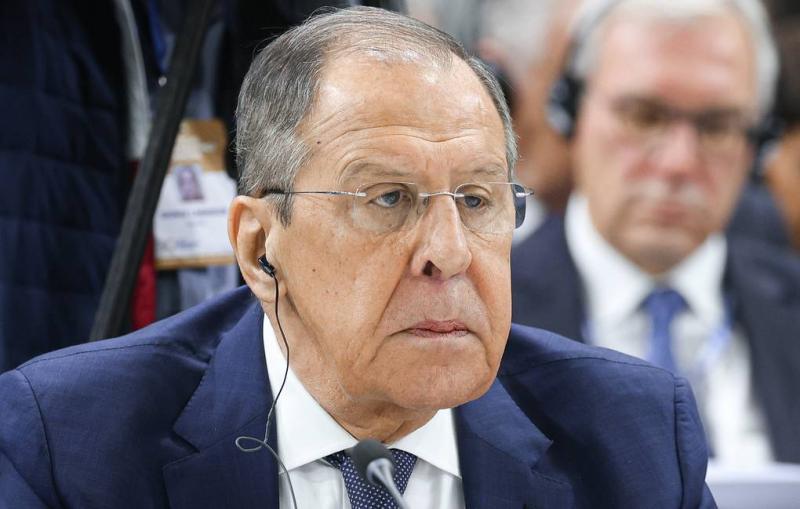
- Press review: Israel and Hamas near a truce while Zelensky drafts a new negotiation plan
- Press review: Who benefits from Russian general's murder as Trump lacks Kremlin strategy
- Press review: EU imposes new anti-Russian sanctions and Russia braces for NATO conflict
- Press review: South Korean president impeached as Ukraine turns to foreign mercenaries
Lavrov attends the OSCE summit in Malta; Ukraine’s delegation begins negotiations with Trump's team; and OPEC+ decides to extend oil output cuts until the end of 2026. These stories topped Friday’s newspaper headlines across Russia, according to TASS news agency.
Vedomosti: Lavrov attends OSCE summit in Malta, his first EU trip since Ukraine conflict
Russian Foreign Minister Sergey Lavrov arrived in Malta to participate in the annual meeting of the Council of Foreign Ministers of the Organization for Security and Co-operation in Europe (OSCE). However, it only underscored the depth of the existing rift with the West, which hampers the work of this organization, experts told Vedomosti. This trip was the first official visit by the Foreign Minister to a European Union country since the beginning of Russia’s special military operation in Ukraine.
In his speech, Lavrov acknowledged that there is currently no area in which "the OSCE could play a useful role." Additionally, Lavrov warned other delegations of the danger that the current Cold War, which in his opinion was launched by Western countries after the "Afghan shame," is entering a more intense phase.
At the same time, no common documents were adopted this time, Lavrov said, because for several years it has been impossible to reach the necessary consensus in the OSCE. Instead of being active on Euro-Atlantic platforms, including the OSCE, Russia now intends to promote Eurasian formats.
The OSCE is the last pan-European organization that claims the role of representing the interests of all participants in the European system in the field of security and development, where Russia is also represented, scientific director of the Russian International Affairs Council Andrey Kortunov told Vedomosti. According to him, the organization is currently in a difficult situation due to the escalation of the conflict between Russia and the West, but Russia is not prepared to leave this organization because it "views it as an asset."
Lavrov’s visit to an EU country shows that the OSCE remains valuable for Russia, Kortunov added. The OSCE also has experience participating in peacekeeping operations in eastern Ukraine - monitoring the 2014-2021 ceasefire agreement, Kortunov recalled. "But if there is no political will for dialogue, then the organization itself cannot replace it. One can only hope that at some point the OSCE will play its role, including in the resolution of the conflict," the expert said.
Lavrov’s visit to Malta is not particularly meaningful, program director of the Valdai Club Oleg Barabanov believes. "The minister will convey the official Russian position on the fair termination of the special operation, and the West, of course, will reject it, and that will be the end of it," the expert told Vedomosti.
Nezavisimaya Gazeta: Ukraine’s delegation begins negotiations with Trump’s team
In a statement marking the 30th anniversary of the Budapest Memorandum, the Verkhovna Rada of Ukraine urged foreign partners to boost military-technical assistance to Kiev and support long-range strikes against Russia. Simultaneously, the delegation sent to the United States, led by Presidential Administration chief Andrey Yermak, according to media reports, sought to reassure President-elect Donald Trump’s team of its willingness to engage in peace talks. Experts interviewed by Nezavisimaya Gazeta stated that Kiev is attempting to lay the groundwork for the negotiation process while simultaneously undermining it by increasing escalation.
It was reported that Yermak had already met with the candidate for the position of Special Representative for Ukraine, Keith Kellogg, the future White House Chief of Staff Susie Wiles, and Trump’s National Security Advisor Mike Waltz. During these meetings, according to the Wall Street Journal (WSJ), the Ukrainian representatives intended to express their willingness for peace talks.
The Verkhovna Rada called for the development of security guarantees for Ukraine and an expansion of its military-technical support, assistance in carrying out long-range strikes on Russian targets, and the deployment of a "deterrence package" on Ukrainian soil. The provision concerning the deployment of a non-nuclear strategic deterrence package was part of the "Victory Plan" presented by Vladimir Zelensky in October.
However, some of the proposed measures conflict with others, head of the Center for Political Information Alexey Mukhin told Nezavisimaya Gazeta.
Essentially, the Kiev authorities are trying to create a foundation for the negotiation process with one hand, while with the other, they are immediately sabotaging it, escalating the situation with a new round of conflict. "It seems that such actions are being taken by unstable Western and Ukrainian actors, which is understandable to some extent, because they convinced themselves and tried to convince others that they could defeat Russia on the battlefield. And when this did not happen, a crisis followed," Mukhin explained.
Today, however, in his opinion, many observers are prematurely discussing various peace plans from Donald Trump’s team, particularly those that suggest a temporary delay in Ukraine’s entry into NATO or the acceptance of a neutral, non-aligned status. Trump’s team is still taking shape. As a result, it is difficult to anticipate any balanced decisions from them that could serve as a foundation for future negotiations or political actions. For now, it is futile to speculate on what Donald Trump or his team might have planned regarding Ukraine, the expert emphasized.
Izvestia: Iraq prepares to repel threats from Syria
The situation in Syria poses a dangerous threat to Iraq, whose army is ready to confront terrorist groups, advisor to the Iraqi Prime Minister Fadi Al-Shammari told Izvestia. Against the backdrop of the military escalation in the neighboring country, there is a risk that militant families from the Al-Hawl refugee camp will infiltrate into Iraq, an Iraqi parliamentary source told Izvestia. Earlier, Baghdad deployed armored units to strengthen the border with Syria. At the same time, on December 5, the Syrian Defense Ministry confirmed the infiltration of militants into the city of Hama.
"The activity of terrorist groups in northwestern Syria is considered a dangerous event due to the time chosen by the militants, their capabilities, and the provision of weapons. This requires caution and full combat readiness," the Iraqi Prime Minister’s advisor said in an interview with Izvestia.
Earlier, spokesman for the Commander-in-Chief of the Armed Forces Yahya Rasool said that the country had sent armored units to the areas bordering Syria to strengthen the positions of its army.
"Our armed forces of all types are fully prepared to confront any terrorist activity that threatens the security of our people. We will crush the terrorists wherever they are and will not allow them to desecrate our country," Fadi Al-Shammari stated.
A parliamentary source in Iraq told Izvestia about concerns regarding the possibility of the Islamic State (designated as a terrorist organization and banned in Russia) militant families entering the country amid the general destabilization in Syria.
"We are concerned about the possibility of many people returning from the Al-Hawl camp. It is necessary to monitor this issue so that they are not recruited by terrorist groups," the source noted.
Terrorist groups in Syria and Iraq have intensified their activities at the beginning of 2024. These groups were able to reorganize and maintain the ability to carry out terrorist attacks and guerrilla operations, military expert and retired officer of the Iraqi Armed Forces Seif Raad told Izvestia.
Izvestia: Bitcoin expected to continue rising, surpassing $120,000
Bitcoin easily surpassed the psychologically important mark of $100,000, which paves the way for the leading cryptocurrency to further rise to $125,000 this year and $160,000 next year, according to experts interviewed by Izvestia. The nomination of a new chairman of the Securities and Exchange Commission by Donald Trump was a positive factor for the cryptocurrency, as Paul Atkins supports innovation in the financial sector. Additionally, bitcoin is supported by macroeconomic factors - a decline in US interest rates, which makes investing in crypto more profitable, as well as growing interest in the asset from institutional players.
In total, since the beginning of the year, bitcoin has increased in price by 140%, BitRiver financial analyst Vladislav Antonov told the newspaper. "The cryptocurrency market was suffocating under the strict regulation of Gary Gensler. Now, with the arrival of Atkins, investors expect radical changes. His reputation as a professional who understands the potential of digital assets inspires serious optimism among investors," the expert said.
According to him, the technical situation also favors growth. Bitcoin not only crossed the psychological threshold of $100,000 but also quickly rose to $103,700. Such indicators show a stable bullish trend.
"At the same time, the macroeconomic landscape is becoming increasingly favorable. The reduction of interest rates by the Fed creates ideal conditions for the inflow of capital into risky assets," Vladislav Antonov added.
Cryptocurrencies are increasingly perceived as a strategic asset, especially against the backdrop of the volatility of traditional markets, Senior Analyst at the closed venture club Digital Finance Daniil Tyun told the newspaper. And the current price level for the purchase of crypto creates favorable conditions for the entry of large players, despite possible short-term fluctuations.
If the current dynamics continue, bitcoin will continue to strengthen, the expert believes. This trend opens the way for the leading cryptocurrency to reach $125,000 by the end of 2024, he said.
Another positive for the global cryptocurrency market is the law on mining adopted in Russia, which came into force on November 1, Director of the Industrial Mining Association Sergey Bezdelov added. The cryptocurrency mined in Russia now provides support for the harmonization of foreign economic activity today.
Vedomosti: OPEC+ countries decide not to increase production until April 2025
OPEC and non-OPEC countries participating in the agreement to reduce oil production (OPEC+) have agreed on production quotas until the end of 2026, according to the communiqu· from the OPEC+ alliance following the ministerial meeting of the countries involved in the agreement on December 5. The alliance members will begin to increase production only in April 2025. Experts told Vedomosti that the decision could have a positive impact on the market.
The official oil production quotas of the countries participating in the deal have been extended by one year, until December 31, 2026. The total maximum production level of OPEC+ countries is 39.7 mln barrels per day, including the total quota of OPEC countries - 24.1 mln barrels per day, and non-OPEC countries - 15.6 mln barrels per day. Russia’s quota will remain at 9.95 mln barrels per day, Saudi Arabia - 10.48 mln barrels per day.
The OPEC+ communique stated that the alliance’s decision was made taking into account the commitment to the goals of achieving and maintaining stability in the oil market.
Lyudmila Rokotyanskaya, stock market analyst at BCS World of Investments, told Vedomosti that OPEC+ has once again "managed to surprise the market" by deciding to postpone the restoration of production until Q2 2025. In her opinion, this step signals the cartel’s determination to keep oil prices at an acceptable level and prevent them from falling below the critical level for the countries involved in the deal.
According to Finam analyst Nikolay Dudchenko, OPEC+’s decision is a logical step given the current price situation. The postponement helps maintain market confidence in the cartel’s ability to control the balance between supply and demand, he believes.
OPEC+’s decision to extend oil production restrictions will have a positive impact on the market, keeping prices at an acceptable level and avoiding the threat of overproduction, Financial University expert Igor Yushkov agrees.
TASS is not responsible for the material quoted in these press reviews
